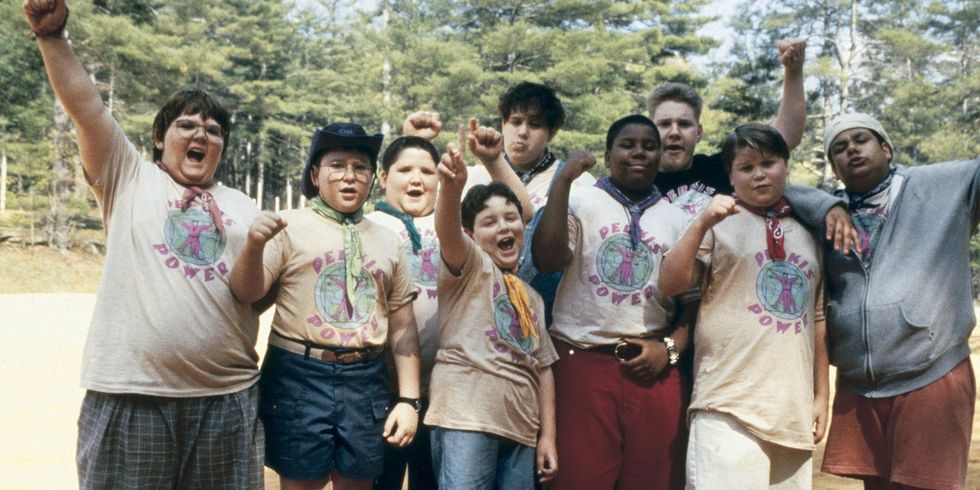Health problems, especially anything physically unappealing, are often portrayed negatively in the media. Obesity or being overweight especially, has been a staple of TV and movie jokes for the longest time. Although it could be funny, it doesn’t make it right.
In television, any negative depiction of obesity is highly exaggerated through cartoons, which sends the wrong images of anyone obese, especially to younger audiences, making more people subtly gain harsh feelings and images towards people who are obese. Peter Griffin from "Family Guy" is a prime example; he is the main character who is also fat and “coincidentally” stupid in comparison to his family members and friends, always getting himself into problems he tends to be the cause for.
In the episode titled “The Fat-Guy Strangler,” Peter is told by his doctor that he is fat and refuses to believe it. When his dog Brian tells him the same, he demands proof. Thus, Brian tells him to stand still as he places objects near his stomach, watching them float, telling Peter he is so fat he has his own orbit. This is a clear exaggeration of excessive weight as it provides humor but also a leeway to ridicule real world people who are overweight or obese. Although the show is not meant for children, it is seen by them. Yet, even actual children’s programs or movies communicate negative messages about being overweight.
In older films such as "The Nutty Professor," "Shallow Hal," and "Just Friends," the main or supporting actors (Eddie Murphy, Gwyneth Paltrow, and Ryan Reynolds, respectively) put on fat-suits in order to play their roles as morbidly obese characters. They go through certain obstacles due to their weight and stature such as feeling bitter and depressed, being mocked by those around them, being unable to attain the woman or man they are chasing after (or simply want to be with), and mostly go through the film as an inferior to those more physically than them.
This weight discrimination becomes a primary factor against the main character and puts a damper on their lives, causing them to be ridiculed. As a result, it causes obese people to go through the same segregation because of these correlations created in the eyes of the audience. In addition, for the film "Shallow Hal," Jack Black plays a shallow man who begins dating a large woman (Paltrow), but only after an accident that makes him believe she is a thinner, more attractive woman. Everyone around him finds it ridiculous that he is dating her and even she thinks his politeness is flawed because she does not think she is as beautiful as he describes her to be.
The stereotype of overweight or obese people is amplified in some cases of modern films, such as Dudley in the Harry Potter series. Rather than being ridiculed for his personal unattainable goals because he is not the primary character, he is instead shown to be ignorant, stupid and his joy comes from bullying Harry. However, this is only possible because his parents side with him, and his cousin is unable to fight back without revealing that he is a wizard. This stereotype has spread from film to the television industry.
This “bully” type character has also been used in gimmicks that create this “bad guy” image with bigger people in the world of wrestling. In the WWE, there have always been large, heavy wrestlers who just so have happened to play “heels” and make the audience hate them. Wrestlers such as Andre the Giant in the 80s and early 90s, the Big Show, King Kong Bundy, Viscera, Mark Henry, were and still are individuals in the wrestling industry that have weighed at least 400 pounds (Andre weighed 525 pounds and the Big Show weighed 500 at one point, for example). All played the evil character for most of their career; although strong and able to beat most of their competitors, the men were made to be hated by fans.
In addition, they were never seen as the face of the company. It was the more aesthetically pleasing people like John Cena, who despite not having a great in-ring ability (despite being more mobile), is advertised as the best. He is also given more opportunities outside of the industry in terms of movies and interviews.
Moreover, in the TV sitcom "Friends" for example, 'Fat Monica' is the depiction of how the character Monica, who is usually seen as adorable and lovable in her regular, thin size would look and act if she gained weight. In this “form,” she is portrayed as pathetic and unable to stop eating, further enforcing the stereotypes people place on obese and overweight people.
Most of these examples seem rather old, but this hasn’t exactly changed and it needs to. We need less TLC shows about people who weigh 600 lbs, or movies straight up hating on characters for their weight alone. We need to equally embrace or analyze without giving immediate disadvantages because of someone being bigger. That’s not to say, love every person who is overweight, but give them a chance before rejecting them or develop their character like in "Superbad" or "Moneyball," where Jonah Hill plays awesome and humorous characters, while still showing he’s big. There are a lot of wonderful personalities in those who may be overweight or obese, and that should always be put in the limelight, just like it should be with everyone else.
















